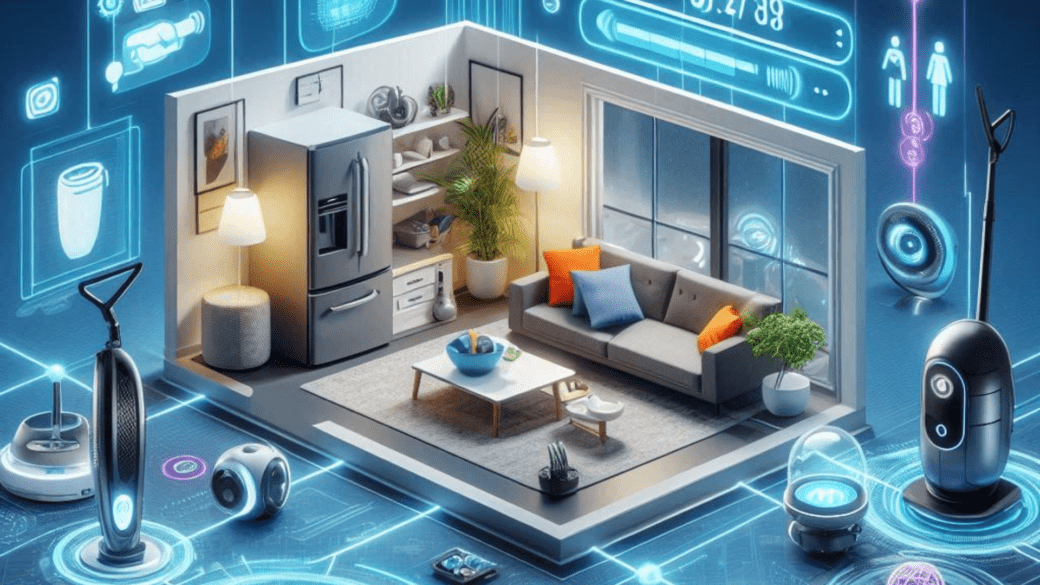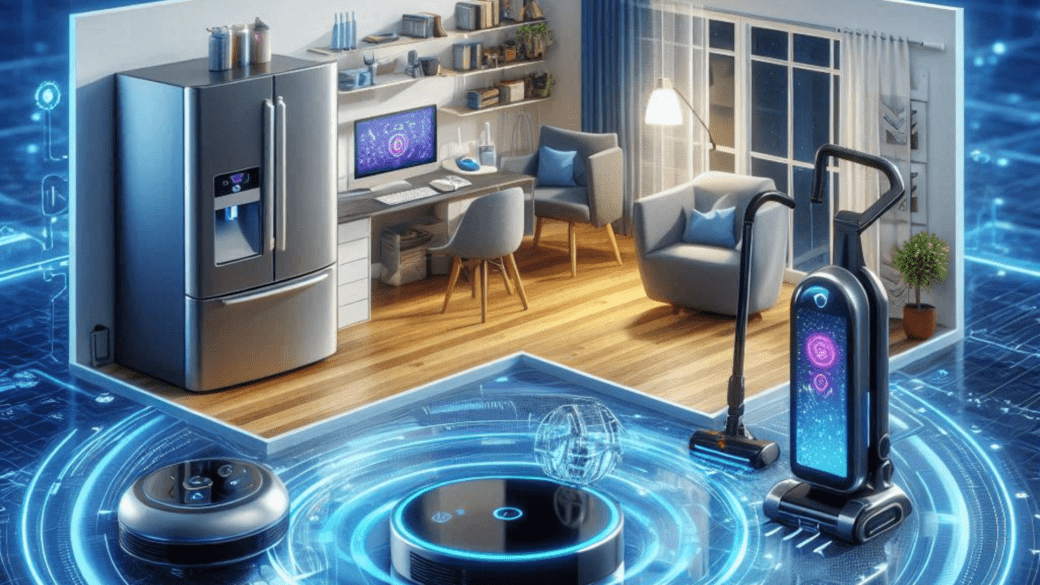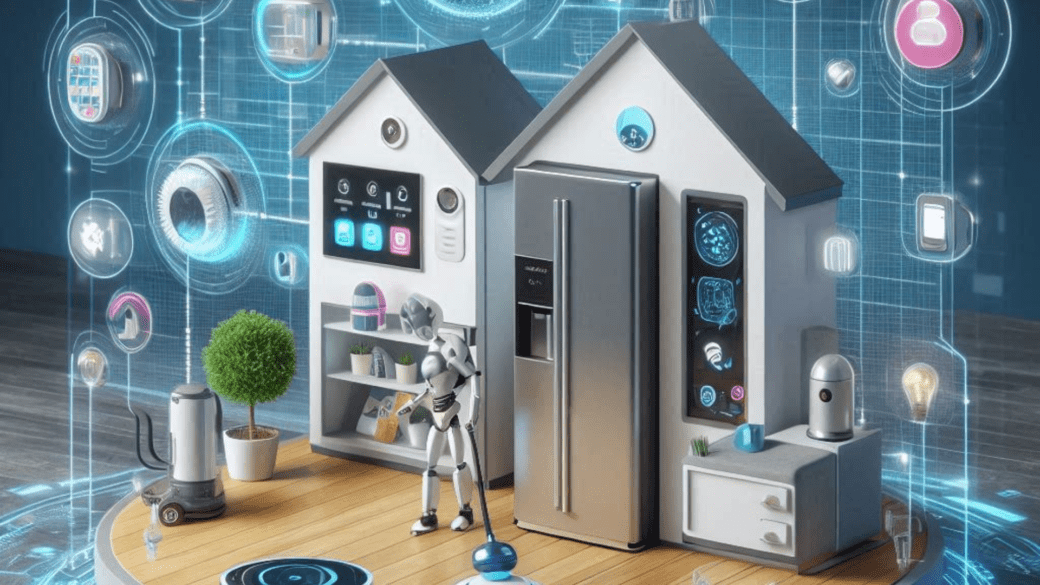The Internet of Things IoT is changing how we live, changing regular homes into smart spaces filled with technology. Imagine a home where lights, security systems, and even appliances talk to each other, and you can control everything from your phone. That’s the magic of smart homes, made possible by IoT, which allows devices to share information over the internet.
So, what does this mean for you? In short, IoT is making our homes more convenient, safer, and energy efficient. In this article, we’ll look at how smart homes are evolving and how IoT is transforming our daily lives in ways we never thought possible.
What is a Smart Home?
A smart home is a residence equipped with various devices connected through the internet. These devices can be controlled remotely and often include automation features. From smart thermostats that learn your temperature preferences to smart doorbells with built-in cameras, these devices are designed to make life easier and more efficient.
The Evolution of Smart Homes
Smart homes have come a long way since their early days. Initially, only luxury homes had high-tech systems that controlled lighting, sound, and security. However, thanks to advancements in IoT and decreasing costs, smart home technology has become widely accessible. Today, nearly anyone can transform their home into a “smart” one with relatively inexpensive gadgets.
Role of IoT in Smart Homes

The Internet of Things (IoT) is the backbone of smart home technology. IoT refers to a network of physical devices—such as home appliances, wearables, and sensors—that communicate with each other over the internet. This allows smart devices to work together seamlessly, creating an interconnected ecosystem that makes our lives easier.
Benefits of Smart Homes
Convenience and Comfort
One of the biggest appeals of smart homes is the convenience they offer. Imagine walking into your house after a long day, and the lights automatically turn on, your favorite playlist starts playing, and the thermostat adjusts to your preferred temperature—all without lifting a finger. IoT makes this possible by automating daily tasks and offering personalized settings.
Energy Efficiency
Another significant benefit of smart homes is energy efficiency. IoT-connected devices, like smart thermostats and energy-efficient lighting, can drastically reduce energy consumption. Smart thermostats, such as the Nest Learning Thermostat, learn your heating and cooling preferences over time and adjust settings automatically to save energy. Smart lighting systems, like Philips Hue, allow you to control lights remotely, ensuring that you’re never wasting electricity.
Home Security
IoT has also transformed home security, making it more advanced and accessible. With smart security systems, you can monitor your home in real-time, receive instant notifications if something is amiss, and even control locks remotely. Devices like smart locks, security cameras, and motion sensors provide enhanced security, allowing you to monitor your home from anywhere.
How Algorithm Work, What Magic Happened Inside?

Challenges Facing Smart Homes
Privacy Concerns and Data Security
While smart homes offer many conveniences, they also come with challenges, particularly regarding privacy and security. With more devices connected to the internet, there’s an increased risk of hacking or data breaches. Ensuring that smart home systems are secure is essential to protect personal information and maintain trust in the technology.
Cost and Complexity In IoT
Although smart home devices have become more affordable, setting up a fully integrated smart home can still be expensive and complex. The initial investment in multiple devices, along with the technical know-how required for installation, can be a barrier for some users.
How AI Works? What Magic Happened Inside?
How IoT is Driving Innovation in Smart Homes
AI and Machine Learning
Artificial intelligence (AI) and machine learning are playing an increasingly vital role in smart homes. These technologies enable smart devices to learn from user behavior and predict future actions, creating a personalized home automation experience. For instance, AI-powered lighting systems can adjust brightness based on time of day and your habits, while smart fridges can suggest recipes based on the ingredients you have available.
What is Machine Learning? :understand in simple way.
Voice Assistants and Smart Homes
Voice assistants like Amazon Alexa, Google Assistant, and Apple’s Siri are key components of smart homes. They allow users to control their devices with simple voice commands, making interaction with smart home systems more intuitive. Whether you’re asking Alexa to play your favorite song or telling Google to lower the thermostat, voice assistants simplify the smart home experience.

The Future of Smart Homes
As IoT technology continues to evolve, so too will the capabilities of smart homes. In the near future, we can expect even more sophisticated AI-powered systems, more seamless integration of devices, and possibly even homes that can anticipate our needs before we know them ourselves. For example, imagine a home that knows when you’re about to arrive and prepares everything to your liking—lights, temperature, and even dinner.
IoT Impact on Everyday Life
Beyond homes, IoT is set to impact various aspects of everyday life. Smart cities are becoming a reality, where traffic lights, public transportation, and even street lighting systems are interconnected to optimize efficiency and reduce environmental impact. IoT is also making waves in industries such as healthcare, where smart medical devices enable real-time patient monitoring, and education, where smart classrooms enhance the learning experience.
Conclusion
The future of smart homes is undeniably bright, with IoT leading the charge. By offering convenience, enhancing security, and promoting energy efficiency, IoT is transforming how we live. While challenges like privacy concerns and cost remain, the potential benefits far outweigh these obstacles. As smart home technology continues to evolve, we’re just scratching the surface of what’s possible in creating truly intelligent living spaces.
FAQs
- What is the biggest benefit of a smart home?
The biggest benefit is the convenience of automating tasks like lighting, temperature control, and security, saving time and effort. - Are smart homes secure?
While smart homes can be vulnerable to hacking, using strong passwords and securing your network can reduce risks. - Can I control my smart home remotely?
Yes, with IoT-connected devices, you can control your home’s lighting, temperature, and security from anywhere using your smartphone. - Do smart homes save money on energy bills?
Absolutely! Smart thermostats and energy-efficient appliances can significantly reduce energy consumption, leading to lower bills. - What’s the future of smart home technology?
The future includes more AI-driven automation, seamless device integration, and advancements that make homes even more intelligent and personalized.
